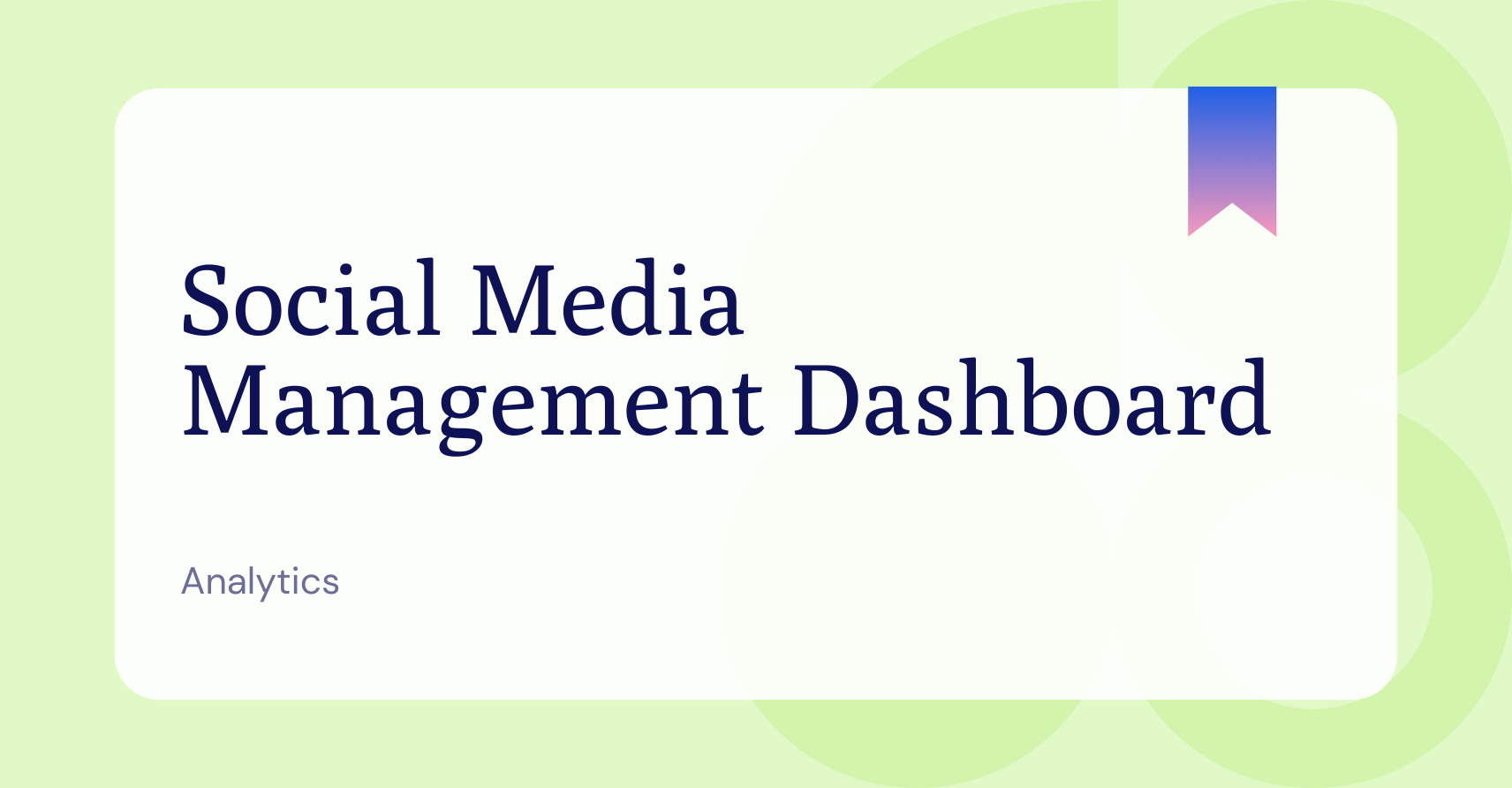A social media management dashboard is a centralized interface that provides an overview of your social media performance. It aggregates data from various social media platforms, presenting key metrics and analytics in an easily digestible format. This tool is crucial for businesses to track the effectiveness of their social media activities, monitor engagement, and make data-driven decisions to optimize their strategies.
What Features Does a Social Media Management Dashboard Offer?
A comprehensive social media management dashboard typically includes the following features:
-
Performance Metrics: Displays key metrics such as likes, shares, comments, and reach.
-
Engagement Analysis: Measures audience engagement and interaction with your content.
-
Content Performance: Evaluate which posts are performing well and why.
-
Audience Insights: Provides demographic data about your followers, such as age, gender, and location.
-
Competitor Analysis: Compare your social media performance with competitors.
-
Trend Monitoring: Identifies trending topics and hashtags relevant to your industry.
-
Customizable Reports: You can generate and customize reports based on specific metrics and timeframes.
How Can a Social Media Dashboard Improve Marketing Campaigns?
A social media dashboard enhances marketing campaigns by:
-
Providing Insights: Offers detailed insights into what content resonates with your audience, allowing for more targeted and effective campaigns.
-
Tracking Progress: Helps track the progress of campaigns in real-time, enabling quick adjustments to improve performance.
-
Identifying Trends: Monitors emerging trends and audience behavior, informing future campaign strategies.
-
Measuring ROI: Tracks key performance indicators (KPIs) to measure your social media efforts' return on investment (ROI).
-
Optimizing Content: Provides data on the best times to post and the most effective content types, optimizing your content strategy.
What Are the Benefits of Using a Social Media Management Dashboard?
The benefits of using a social media management dashboard include:
-
Improved Decision-Making: Access to comprehensive data and analytics facilitates informed decision-making.
-
Time Savings: Centralized data collection and analysis save time compared to manual tracking.
-
Enhanced Strategy: Data-driven insights lead to more effective social media strategies.
-
Better Engagement: Understanding audience preferences and behaviors improves engagement and interaction.
-
Efficient Reporting: Customizable reports simplify the process of sharing results with stakeholders.
How Does a Social Media Dashboard Help with Content Planning?
A social media dashboard aids in content planning by:
-
Identifying High-Performing Content: Highlights which types of content perform best, guiding future content creation.
-
Scheduling Insights: Provides data on the best times to post for maximum engagement.
-
Audience Preferences: Offers insights into what your audience likes and engages with, helping to tailor content to their preferences.
-
Content Gaps: Identifies gaps in your content strategy, suggesting areas for improvement.
-
Campaign Planning: Assists in planning and scheduling campaigns by providing a clear overview of past performance and upcoming content.
What Analytics Are Available in a Social Media Management Dashboard?
Analytics available in a social media management dashboard typically include:
-
Engagement Metrics: Likes, shares, comments, and other interactions with your content.
-
Reach and Impressions: The number of people who see your content and how often it appears in their feeds.
-
Follower Growth: Changes in your follower count over time.
-
Traffic Sources: Where your social media traffic is coming from, such as specific platforms or referral sites.
-
Conversion Tracking: How social media activities such as sales or sign-ups contribute to conversions.
-
Content Performance: Detailed performance data for individual posts and campaigns.
-
Demographic Insights: Information about the demographics of your audience, including age, gender, location, and interests.
How Does a Social Media Dashboard Support Proving Social Media Marketing Success?
A social media dashboard supports proving social media marketing success by:
-
Providing Quantifiable Data: Offers concrete metrics to measure the success of your social media efforts.
-
Generating Reports: Customizable reports that present performance data to stakeholders.
-
Linking Activities to Outcomes: Demonstrates how social media activities contribute to business goals such as lead generation, sales, and customer retention.
-
Setting Benchmarks: Establishes benchmarks and tracks progress over time, showing growth and areas for improvement.
-
Visualizing Success: Uses graphs and charts to represent data, making it easier to communicate success visually.
What is the LinkedIn Social Media Management Dashboard?
The LinkedIn social media management dashboard is a specialized tool that provides insights into your LinkedIn activities. It includes:
-
Profile Analytics: Data on profile views, search appearances, and post engagement.
-
Company Page Insights: Metrics for company pages, including follower growth, post reach, and engagement.
-
Content Performance: Analysis of how your LinkedIn posts and articles are performing.
-
Audience Demographics: Information on the demographics of your followers and post viewers.
-
Lead Generation: Tools to track how LinkedIn activities contribute to lead generation efforts.
-
Ad Performance: Insights into the performance of LinkedIn ads, including clicks, impressions, and conversions.
